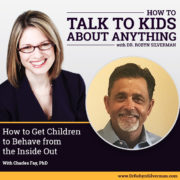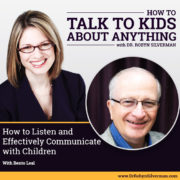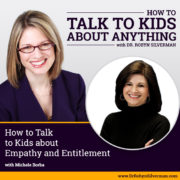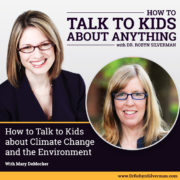How to Get Children to Behave from the Inside Out with Dr. Charles Fay
Special Guest: Dr. Charles Fay
As parents, we have heard that the days are long and the years are short. The days can be filled with mistakes, sibling rivalry, tantrums, boundary testing, bedtime battles and tough discussions—and even as they are interspersed with fun, excitement, pride, connection and love, as parents, it’s normal to feel frustrated at times and want tools to help make the days go a bit more smoothly. The truth is, we DO only have a relatively short time to help raise our children to become responsible, capable and confident before they head out the door as adults. To put it in perspective, Dr. Laura Markham told us on one of the three episodes of How to Talk to Kids about Anything that she did with us that we only have 900 weeks with our kids before they turn 18 so be fully present when you are with them— and Vicki Hoefle reminds us with a similar sentiment, “parent the child who will be 24 in a hot second. Parenting is not about what happens for you between the ages of 0 and 18, Parenting is what happens for our children between the ages of 18 and 80.” Let that sink in for a bit there. So, how do we parent our children, knowing that we don’t have a lot of time to, in fact, parent them, but the time we spend is so important. Our next guest will tell us that it’s about parenting with love and logic and getting children to behave from the inside out.




